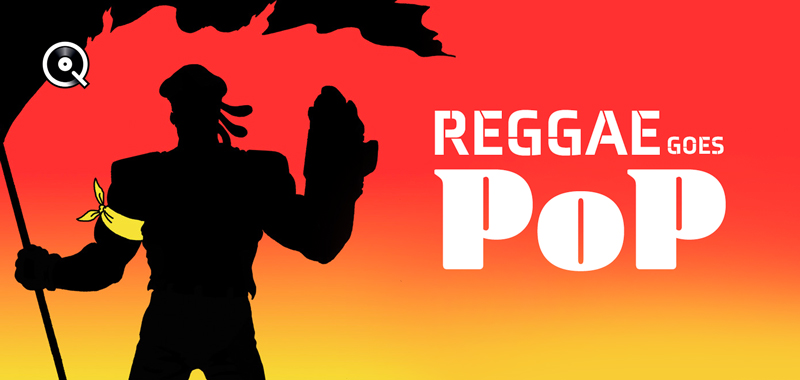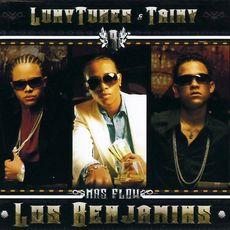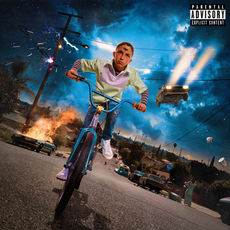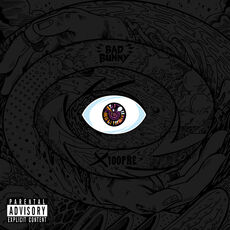A combination of Jamaican dancehall, American hip-hop, Caribbean rhythms and Spanish wit, reggaeton has, since its birth in the early 90s, shaken the world of pop music time and time again. From DJ Playero’s first mixtapes to Daddy Yankee’s “Barrio Fino” and Don Chezina’s “Tra-Tra-Tra, Puerto Rican musicians and their Colombian counterparts in Medellin have done their utmost to take over the world. In the last decade, they have done just that thanks to artists such as Luis Fonsi, J. Balvin and Bad Bunny. Read on for 10 of the genre’s most important albums. Reggaeton won’t be going anywhere any time soon.
Daddy Yankee - Barrio Fino (2004)
Barrio Fino is considered the classic reggaeton album. It gave the genre radio exposure and garnered Daddy Yankee international recognition as a pioneer on the San Juan music scene. He was also the one to coin the term “reggaeton”, a means of describing the mix between dancehall, hip-hop and Caribbean rhythms. With the help of Glory on backing vocals, Daddy Yankee pushed the genre over the threshold towards exportation and the mainstream. Carried by two of the genre’s most famous tracks, the street Gasolina and the more salsa Lo Que Pasó, Pasó, Barrio Fino shot to number one on Billboard’s Top Latin Albums list and became the genre’s biggest selling album of the decade, opening the door to artists like Don Omar, Tito El Bambino and the duo Wisin & Yandel who feature on No Me Dejes Solo. “It was the beginning of a movement”, explains Yankee. “Barrio Fino brought a kind of glamour to the barrio. Kids would say to themselves: if Yankee can make it, so can I. Thanks to Gasolina, the entire world knew about reggaeton. Part of this track’s success came from the fact that people were asking what meaning was hidden with the term ‘gasolina’. Was it about drugs? Alcohol? But no, this song is completely literal. It’s the most innocent song I have ever written.”
Ivy Queen - Diva (2004)
Ivy Queen’s story is intimately linked to reggaeton’s origins. She was the first woman to join The Noise, a club/collective formed between 1992 and 1994 which included DJ Negro, DJ Nelson and Don Chezina, the man behind Tra-Tra-Tra, one of the first reggaeton sounds to enter the USA in 1998. After an anxious audition, Ivy Queen was accepted and became one of the rising stars of the Puerto Rican crew. She made a strong impression on the track Somos Rapperos Pero No Delincuentes, a Cypress Hill sounding boom bap with a Mr Vegas-sounding flow and an irresistible syncopated beat. She also signed a deal with Sony and released two albums under them, but which turned out to be a commercial disappointment for the major label. Ivy Queen was largely without direction in 1999 and hence took a break from her career. In 2001, she re-entered the fray and released Diva in 2004. The timing couldn’t have been more perfect. Daddy Yankee had just released Barrio Fino and reggaeton was soon to explode onto the world stage. Diva, produced by San Juan’s top producers, Luny Tunes, DJ Nelson, Noriega and Iván Joy, would become certified platinum thanks to the hit Quiero Bailar with its intro which imitating Liquid Riddim by Jamaican producer Jeremy Harding. Quiero Bailar was one of 2001’s biggest hits in the dancehall world popularised by T.O.K’s contentious track Keep It Blazin. Ivy Queen had finally made it to the top.
Luny Tunes & Tainy - Mas Flow : Los Benjamins (2006)
In the early 2000s, Francisco Saldan (Luny) and Victor Cabrera (Tunes) had a mere 40 years between them and few credentials to show for it. Ivy Queen was first to entrust them with the production of her single Quiero Saber. Next, they produced Hector & Tito’s A La Reconquista before DJ Nelson decided to sign them to his label Flow Music. They became the most popular beatmakers in San Juan after they made the beat for Gasolina, Daddy Yankee’s worldwide hit released in 2004. A wide path was opened up to them and two years later they released their first eponymous album which brought together some big names from the local scene (Don Omar, Daddy Yankee, Héctor El Father, Tito El Bambino, Wisin & Yandel, Alexis & Fido, Ñejo & Dalmata, Arcángel & De La Ghetto…); the 6-minute Royal Rumble (Se Van) features a freestyle by Daddy Yankee, Don Omar and Hector El Father. It’s an album of pure, unadulterated reggaeton straight from the streets. The duo also introduced their young padawan, Tainy, to the world. Tainy went on to become one of the most sought after producers of the following decade, producing hits such as I Like It by Cardi B featuring Bad Bunny and J Balvin and No Es Justo by J Balvin with Zion & Lennox.
Don Omar - The Last Don (2003)
This album marked the coming of Don Omar aka El Rey or the King of Reggaeton. After a very protestant upbringing, Omar became began his musical career alongside the production duo Luny Tunes. He then worked as a backup singer for the duo Héctor and Tito. Héctor Delgado then took him under his wing to help him produce his first album which turned out to be a real masterpiece. In June 2003, with Eliel and Luny on the production, Don Omar introduced to the world a reggaeton which remained close to its roots while flaunting an array of hits including the singles Dale Don Dale, Dile, Intocable (with its dancehall, hip-hop, dembow and salsa flavours), Dale Don Más Duro featuring Glory, and the very street La Noche Esta Buena with the king, Daddy Yankee. After being awarded best album of the year and best new artist of the year at the Billboard Latin Music Awards in 2003, Don Omar’s authentic and pure brand of music was propelled onto to the pop world stage. He continued his Latino superstar transformation with his cover of La Lambada (Taboo) and his appearances in the Fast & Furious film series with fellow musician Tego Calderón.
Tego Calderón - El Abayarde (2004)
Puerto Rican rapper Tego Calderón’s first album underwent a turbulent journey. In December 2002, one week after its release, the legendary local label White Lion found itself overwhelmed by the album’s high sales. 50,000 copies of the album had already been sold, notably to immigrants in the United States, meaning that more had to be made. But reggaeton fans couldn’t bare the wait and turned to pirate copies from the San Juan underground. White Lion ended up signing a deal with Sony BMG several weeks later to meet the demand. The disc was to be reissued with a different cover and some bonus tracks so as to differentiate it from pirate copies. In the meantime, Tego Calderón became the Puerto Rico’s newest star thanks to his salsa-tinted reggaeton and his highly appealing, debonair flow on top of beats made by some of the island’s best producer, the unstoppable Luny Tunes, DJ Nelson and Maestro. El Abaryarde is likely the album which did the most to cement reggaeton as a force to be reckoned wth in the United States and Europe.
Create a free account to keep reading














